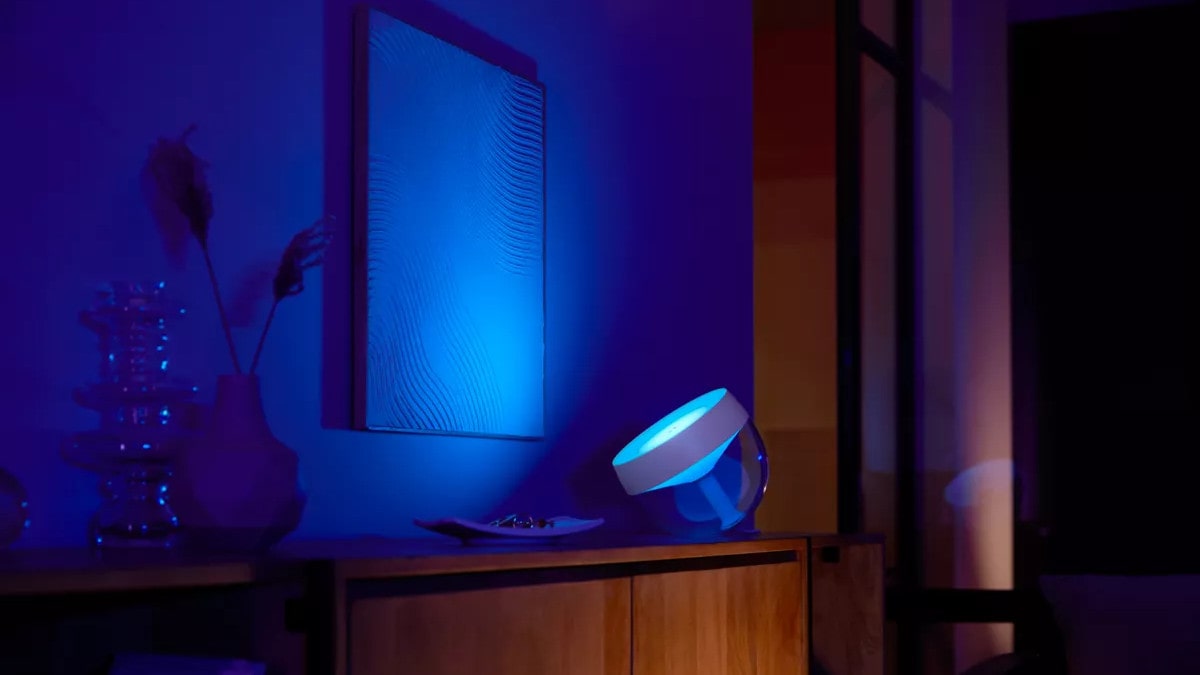There's some good (and very bad) news for Philips Hue smart light owners
Philips Hue gives with one hand and takes away with another.

If you're in the Philips Hue smart light ecosystem you might have a Hue Bridge at the center of it. If that's the case, there's a cool new software update that you're going to enjoy. But there's also some news that some people will very much not be fans of.
A new software update is now rolling out to Philips Hue Bridges around the world that adds support for an important smart home standard — Matter.
However, a new report also suggests that Philips Hue could be getting ready to force users to create a company account to be able to access their accessories, and that could be bad for the privacy-conscious among us.
The good and the bad of Hue
Starting with the good news, support for Matter will mean that the Hue Bridge will gain support for other Matter-capable devices that you might have around the home.
The upshot for people who already have their Hue lights and accessories configured in the Home app is that they won't notice anything new. But for everyone else, this now means that people will be able to set up their Matter-capable accessories via the Hue app and then control them there, too.
The new feature is a welcome one and it makes it easier for people to make their smart home components work more closely with each other, no matter which company might make them. Philips Hue makes some of the best HomeKit lights out there, but there might be a new catch to consider.
The security researchers at Mysk report that Philips Hue "will soon force users to create a Hue account and sign in to continue to use the app" including controlling their smart lights.
Master your iPhone in minutes
iMore offers spot-on advice and guidance from our team of experts, with decades of Apple device experience to lean on. Learn more with iMore!
Philips Hue will soon force users to create a Hue account and sign in to continue to use the app and control the smart lights. The best security model to protect smart devices is to keep them disconnected from the internet, or at least keep this option available.#Privacy pic.twitter.com/pDzGhZ8hETSeptember 20, 2023
That's a worrisome situation because, as a follow-up Mysk post on X notes, "many privacy-conscious users have picked Philips Hue because it doesn't require an account and that, in fact, encouraged them to buy more of your lights."
They also note that "the best security model to protect smart devices is to keep them disconnected from the internet, or at least keep this option available."
Whether Philips Hue customers will eventually lose access to their smart lights if they don't sign in with an account remains to be seen, but that's perhaps another reason to configure them using the Home app rather than the Hue one.

Oliver Haslam has written about Apple and the wider technology business for more than a decade with bylines on How-To Geek, PC Mag, iDownloadBlog, and many more. He has also been published in print for Macworld, including cover stories. At iMore, Oliver is involved in daily news coverage and, not being short of opinions, has been known to 'explain' those thoughts in more detail, too. Having grown up using PCs and spending far too much money on graphics card and flashy RAM, Oliver switched to the Mac with a G5 iMac and hasn't looked back. Since then he's seen the growth of the smartphone world, backed by iPhone, and new product categories come and go. Current expertise includes iOS, macOS, streaming services, and pretty much anything that has a battery or plugs into a wall. Oliver also covers mobile gaming for iMore, with Apple Arcade a particular focus. He's been gaming since the Atari 2600 days and still struggles to comprehend the fact he can play console quality titles on his pocket computer.
